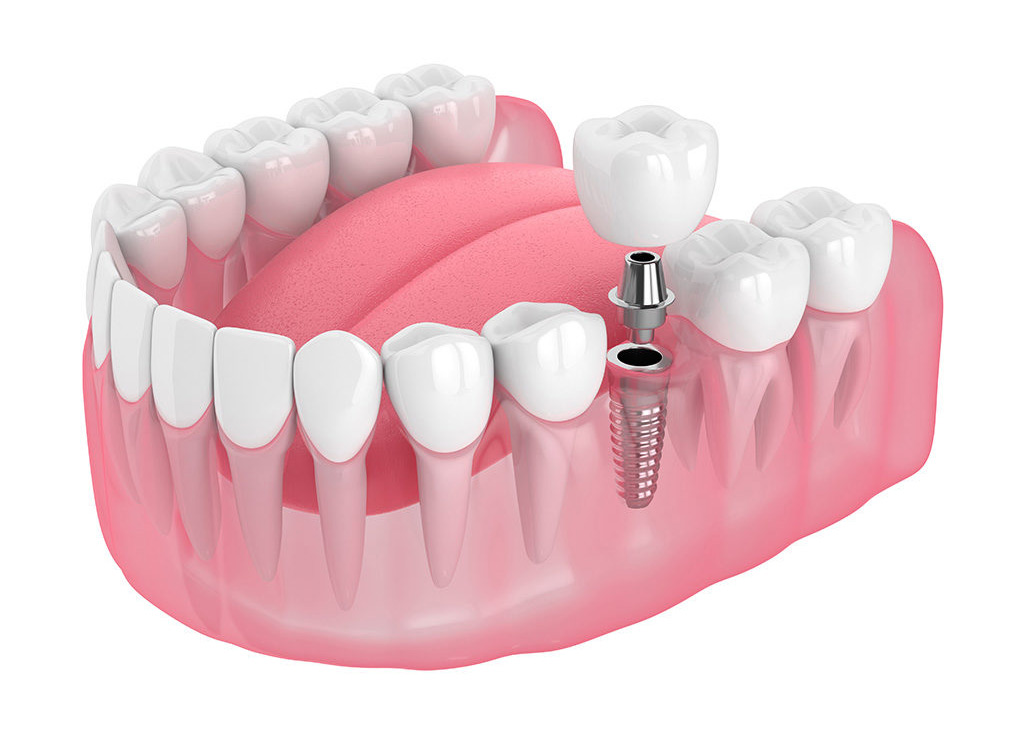Dental implants are artificial tooth roots that are used to replace missing or damaged teeth. They provide a strong foundation for fixed or removable replacement teeth. Dental implants are designed to look, feel, and function like natural teeth, and they can make a significant difference in a person’s oral health and self-confidence.
Definition and Overview of Dental Implants
Dental implants are small titanium posts that are surgically placed into the jawbone. These posts act as anchors for artificial teeth, such as crowns, bridges, or dentures. The implant fuses with the surrounding bone, creating a stable base for the replacement teeth.
Types of Dental Implants
There are two main types of dental implants: endosteal implants and subperiosteal implants. Endosteal implants are the most common type and are placed directly into the jawbone. Subperiosteal implants are placed on top of the jawbone, beneath the gum tissue. The type of implant used depends on various factors, including the patient’s oral health and the availability of bone structure.
The Dental Implant Procedure
The dental implant procedure involves several steps and requires collaboration between the patient, the dentist, and other dental specialists. First, a comprehensive examination and evaluation are conducted to determine if the patient is a suitable candidate for implants. This includes assessing the quantity and quality of the jawbone.
Once it is determined that the patient is eligible for dental implants, the procedure begins with the placement of the implant into the jawbone. This is done through a surgical procedure under local anesthesia. After the implant is placed, a healing period of several months is required to allow the implant to integrate with the bone.
Once the healing period is complete, an abutment is placed on top of the implant. The abutment serves as a connector between the implant and the replacement tooth. Finally, a custom-made crown, bridge, or denture is fabricated and attached to the abutment, completing the dental implant restoration.
Factors Affecting Longevity
Several factors contribute to the longevity of dental implants. Understanding these factors can help patients make informed decisions and take necessary steps to ensure the long-term success of their implants.
Bone Density and Quality
The density and quality of the jawbone play a crucial role in the success of dental implants. Sufficient bone mass and volume are required to provide stability and support for the implant. If the bone is thin or weak, additional procedures such as bone grafting may be necessary to build up the bone before implant placement.
Patient’s Oral Hygiene and Maintenance
Maintaining good oral hygiene is essential for the longevity of dental implants. Regular brushing, flossing, and dental check-ups are necessary to prevent gum disease and infection. Poor oral hygiene can lead to peri-implantitis, a condition in which the tissue around the implant becomes inflamed and infected, jeopardizing the implant’s longevity.
Material and Design of the Implant
The material and design of the implant contribute to its longevity. Titanium is the most common material used for dental implants due to its biocompatibility and durability. The surface characteristics of the implant also play a role in osseointegration, the process by which the implant fuses with the bone. Advances in implant design, such as tapered or thread designs, can enhance stability and promote long-term success.
Long-term Success Rates
Dental implants have a high long-term success rate, with studies reporting success rates of 95% or higher over a 10-year period.
However, it is important to note that individual success rates may vary depending on various factors.
Factors Contributing to the Long-term Success of Dental Implants
Several factors contribute to the long-term success of dental implants. Adequate bone support, proper oral hygiene, and regular dental check-ups are crucial.
Additionally, avoiding habits such as smoking and maintaining a healthy lifestyle can improve the chances of implant success.
Common Complications and Their Impact on Longevity
While dental implants have a high success rate, complications can occur. The most common complications include infection, implant failure, and peri-implantitis. These complications can have a significant impact on the longevity of dental implants. Early detection and prompt treatment are key to addressing these complications and preserving the implant’s lifespan.
Maintenance and Care for Longevity
Proper maintenance and care are essential to ensure the longevity of dental implants. Following the post-implant care instructions provided by the dentist is crucial during the initial healing period. Regular dental check-ups, professional cleanings, and X-rays are necessary to monitor the health of the implant and surrounding tissues.
Importance of Regular Dental Check-ups
Regular dental check-ups are essential for the long-term success of dental implants. The dentist can assess the health of the implant, detect any signs of complications or issues early on, and provide necessary treatments or interventions. Routine check-ups also allow for the maintenance of oral hygiene and the prevention of potential problems.
Tips for Maintaining the Longevity of Dental Implants
To maximize the lifespan of dental implants, it is important to follow a few key tips. These include:
Practicing good oral hygiene by brushing twice a day and flossing daily.
- Using a soft-bristle toothbrush and a non-abrasive toothpaste to prevent damage to the implant.
- Avoiding chewing on hard foods or objects that can put excessive force on the implant.
- Quitting smoking, as smoking can impair the healing process and increase the risk of implant failure.
- Maintaining a healthy lifestyle, including a balanced diet and regular exercise, to promote overall oral and systemic health.
FAQs
What are dental implants?
Dental implants are artificial tooth roots made of titanium that are used to replace missing teeth. They provide a strong foundation for replacement teeth and are designed to look, feel, and function like natural teeth.
What factors affect the longevity of dental implants?
Factors that affect the longevity of dental implants include bone density, patient’s oral hygiene, and maintenance, as well as the material and design of the implant.
How long can dental implants last?
Dental implants can last for many years and even a lifetime with proper care and maintenance. Studies have reported success rates of 95% or higher over a 10-year period.
Are there any specific maintenance requirements to extend the lifespan of dental implants?
Yes, specific maintenance requirements are necessary to extend the lifespan of dental implants. These include practicing good oral hygiene, attending regular dental check-ups, and avoiding habits such as smoking. Following the dentist’s instructions and recommendations is vital for the long-term success of dental implants.




